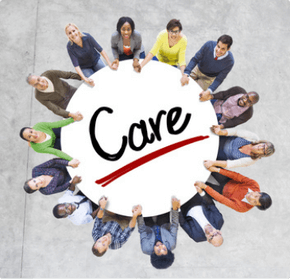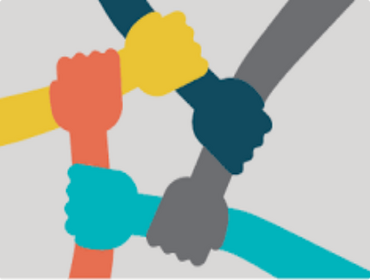Facts About Peer Support and HeyPeers
Peer Supporters on HeyPeers
Our Peer Supporters are individuals with "lived experience" - someone who has had challenges that are like yours and who has learned some things about how to manage them. Most of the Peer Supporters on HeyPeers are Certified Peer Specialists or Certified Recovery Coaches. This means that they have completed training for helping others. They are skillful at listening and helping you to find a path forward. Some of our Peer Specialists are licensed therapists or other types of clinical health care professionals, but they only provide peer support on HeyPeers.


What Does a Peer Supporter Do?
Our Peer Supporters work with participants one-on one and in groups to help them develop options and encouragement for dealing with the issues they are experiencing. They help you to create a plan and assist you making it work. They serve as a sounding board and in group meetings help you to try out your ideas or ask questions of others. Our Peer Supporters know a lot of different techniques you can consider trying and they also have great group facilitation skills.
Testimonials
What they say
These post meeting, anonymous participant comments provide a powerful testimony to peer support.
"I am very thankful to have taken part in this meeting. Having someone with an outside perspective and experience with the same issues I've been dealing with was a beneficial and new experience. I hope to connect with more people this way."
"The meeting was beneficial for chronic depression and anxiety. I am new to this platform, so I must learn to navigate the HeyPeers platform, the meetings, and the books. I am excited!! Thank you so much. I appreciate that the group leader prayed for my boyfriend, who is working in a hospital during this pandemic."
"On my first meeting, I didn't know what to expect. It was great to connect with others who understand what I am dealing with. There's nothing like this where I live."
"The experience was a blessing; I returned from the meeting feeling better, related to others, and learned more about depression and some recovery techniques."
Can Peer Support Help Me?
They illustrate just a few of the reasons peer support is being applied so successfully.
It works
Individuals who receive peer support do as well or better than those receiving conventional treatment for depression (see Pfeiffer.et.2011). Peer support has also been shown to reduce hospital readmissions by 73% in a 2022 study by Optum/Yale Medical School. Our own recent study of web conference - based peer support group participants reported a 69% reduction in hospital admissions.
Learn More
Lived Experience - and More
Certified Peer Specialists (CPSs) have "lived experience" with their condition, giving them credibility with participants that few other members of the health team will possess. They have achieved and maintained their recovery, providing a construction, positive role model for participants, and reducing stigma issues during their meetings.
Learn MoreThe Participants Themselves
Finally, although Certified Peer Specialists are skillfull and inspiring people, a careful reading of our anonymous comments brings out something that might not be expected. The participants are helping each other to heal - it is powerful to talk with others who are having similar experience.
Learn MoreWhat Does Science Say about the Value of Peer Support?
From the University of North Carolina, Chapel Hill
"Much evidence supports that peer support is a critical and effective strategy for ongoing health care and sustained behavior change for people with chronic diseases and other conditions, and its benefits can be extended to community, organizational and societal levels."
Overall studies have found that social support has the following positive impact:
- Decreases morbidity and mortality rates
- Increases life expectancy
- Increases knowledge of a disease
- Improves self-efficacy
- Reduces use of emergency services
- Improves self reported health status and self-care skills including medication adherence
- Additionally, providers of social support report less depression, heightened self-esteem and self-efficacy, and improved quality of life.
